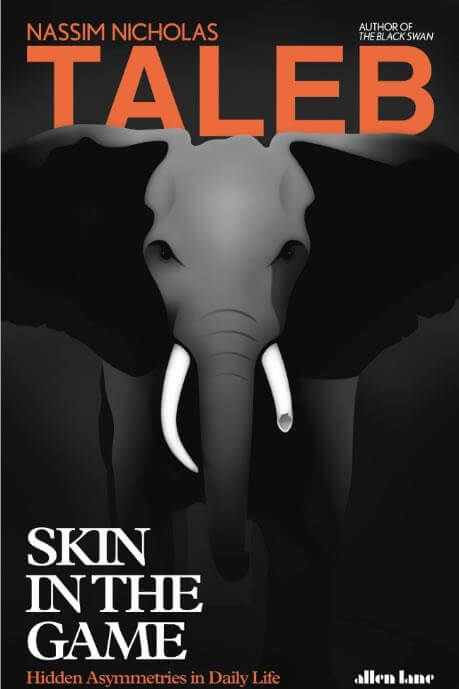Create alignment to serve both your customer’s needs and those of your business. Make sure both you and they have skin in the game.

“Do not pay attention to what people say, only to what they do, and to how much of their necks they are putting on the line”
from “Skin in the Game” by Nassim Nicholas Taleb
The UK Government has constantly said they are doing “everything they can” to financially support the population through the pandemic.
However, while for many they have done this and done it admirably, for several million they have given them absolutely nothing. Watch what people do, not what they say.
This month marks one year since the pandemic lockdown started. In the UK, the government provided strong financial support to people in employment, typically paying up to 80% of their salaries up to earnings of £50,000. However, for several million entrepreneurs structuring their business as a company, how much support do you think they were given? Nothing. Nada. Niente. These people are entrepreneurs, they run their own business, they take risks, they have no holiday/vacation pay, no sick pay or other benefits of those who are employed. Oh, and to bust the oft-repeated myth among the employed that entrepreneurs avoid so much tax, at £50,000 earnings the difference in total deductions is wafer-thin (Employed c24.7%, Limited company directors 23.7%) yet, and I repeat, entrepreneurs take lots of risks, they don’t earn a steady income, their business and earnings are always at risk.
So, why, despite this repeatedly being drawn to the attention of the UK Government, did the Government choose to consciously dismiss these concerns?
At least in part I’d put this down to two things, and we can learn from both in our own lives, business and decision-making:
- Empathy – this requires truly putting ourselves in the position of others, to seek to understand deeply what their situation is, what they are going through. At some level, it is impossible for people with among the most secure employment there is (civil servants in central government) to put themselves in the shoes of an entrepreneur. For thoughts on this, I wrote this post: “To see ourselves as others see us“.
- Skin in the Game. I used a quote above from Taleb’s seminal book, and a few years ago I wrote a lengthy post focussed on how things can go wrong when decision-makers do not truly have skin in the game: “Do you have “skin in the game” ?” As to the current situation, put bluntly, not only can they not empathise, but it is no personal consequence (aka “skin in the game”) to securely employed civil servants designing policies if they leave out entrepreneurs entirely.
Let’s consider the UK as “UK Inc”, as a business. The message sent by UK Government in the last year is one of profound disrespect to the bravery, commitment and drive shown by millions of small business entrepreneurs. This lack of empathy and recognition that those entrepreneurs had massive “skin in the game” will, I believe have long term negative economic impact on the “UK Inc” business, as the levels of entrepreneurial activity will drop. So many will feel burned, they will, where they can, make a “flight for safety” to be employed by others rather than carve out their own entpreneurial path, filling the gaps we as consumers need, innovating, committing, working hard for their goals and dreams
To me this has been a major mis-step and one driven by lack of both Empathy and having “Skin in the Game”.
Now, what lessons can you take for this in your own business and your own leadership. Let me keep it simple.
First, do everything you can to truly be empathetic to your people, to understand their wants, needs, hopes, dreams, how they think, feel, operate, live.
Second, create alignment with them that serves both their needs and that of your business. Make sure both you and they have “skin in the game” that creates alignment and commitment for all. How to do this? First, go to my “skin in the game” article, it has many references and examples. Second, talk to me, as creating such alignment (whether for employer/employee relationships or investor/entrepreneurs, even institutional investor/listed company leadership relationships) is a speciality.
Oh, and whether it is a one or two person business, a multi-national or a country, it is always the same situation, just “more zeros”.
